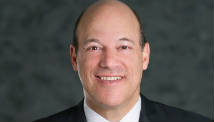First lady Michelle Obama helps paint a bench at a service event. She and her family will be participating in National Service Day.
STORY HIGHLIGHTS
- Chelsea Clinton heads National Day of Service on Saturday, will kick off inauguration weekend
- All the states will offer volunteer opportunities everyone can participate in, she writes
- Chelsea Clinton's grandmothers instilled in her family the value of service
- She says if everyone commits to year-round volunteer work, lots can be achieved
Editor's note: Chelsea Clinton works with the Clinton Foundation and the Clinton Global Initiative and serves on the boards of both organizations. She is a special correspondent for NBC News and also serves on the boards of the School of American Ballet, Common Sense Media and the Weill Cornell Medical College. She and her husband, Marc, live in New York City.
(CNN) -- I'm proud to be the honorary chair of the National Day of Service happening this Saturday, inspired by Martin Luther King Jr.'s life and legacy. It's the perfect way to kick off the inauguration weekend because anyone can participate, and we know that when we work together, we will achieve more than one person could on his or her own.
President Barack Obama, Vice President Joe Biden, members of Congress and their families will be rolling up their sleeves at service projects in our nation's capital. But you don't have to be in Washington to get involved. From repairing fire-damaged homes in Colorado and cleaning sidewalks in Detroit to spending time with children with disabilities in New Orleans, every state will offer opportunities to volunteer.
All these projects have one big thing in common: They're making a community, our country and our world better. That's part of what makes service special. Whether it's volunteering time, skills, ideas or resources, we all can make a difference.

Chelsea Clinton
When I was growing up, my parents and grandparents taught me that engaging in service, helping our neighbors and building strong communities are all part of being a good citizen and a good person.
My grandmothers, Virginia and Dorothy, embodied that conviction.
They both had hard lives growing up during the Depression and World War II, but despite the obstacles they faced, they found time to volunteer at their churches and community centers and later, their kids' schools. They created families full of love, support and service.
My parents instilled their mothers' values in me from early on. In Little Rock, Arkansas, we went to church on Sundays, and afterward, conversation often turned to what volunteer project we could do together. Favorites were deciding which books to donate to the church or library and cleaning up parks together, something my father always managed turn into a game.
When we moved to Washington, service remained an important part of my life. In high school, I helped head the service club, and in college, I volunteered as an America Reads tutor and in the art therapy room at the Lucile Packard Children's Hospital in California. I loved talking to my grandmothers about my volunteer work, and I agreed with them: I received more than I could ever possibly give.
Some volunteer work, such as removing debris after hurricanes, is undeniably hard, physically and emotionally. But a lot of activities, such as chaperoning school field trips, helping a sick child make a collage, reading to older people who have lost their eyesight or participating in an AIDS walk with friends, can be lots of fun. The work is also elevating and powerful.
This Saturday, as I join thousands of Americans coming together to do their part, I'll be thinking about my grandmothers, just like I do every day. I know they'd be proud of our country, that in cities and towns across America, people are lending their neighbors a hand, just as they taught their children and grandchildren to do.
But as exciting as the National Day of Service will be, it will be even more powerful if it is just the beginning. Already, people are going online to pledge to make giving back a part of their lives, not just for a day or for a week, but all year round. If everyone who pitches in this weekend keeps up that commitment throughout the year, think about how much good we can all do. Lots of small acts add up to big change.
Nineteen years ago, my father proudly signed the bill making Martin Luther King Day a time dedicated to serving others. At the speech he gave to mark the event, he reminded us of what King once called, "Life's most persistent and urgent question: What are you doing for others?"
There are countless right answers to that question -- the only wrong one is to do nothing. As we think about the future of our communities and our country, we each have the ability and the responsibility to participate.
I hope you can join me, the first family and our entire American family this Saturday as we make this country that we love even better. You can learn more, find an event near you, and pledge to serve here, at the National Day of Service site.
Follow us on Twitter @CNNOpinion.
Join us on Facebook/CNNOpinion.
The opinions expressed in this commentary are solely those of Chelsea Clinton.











